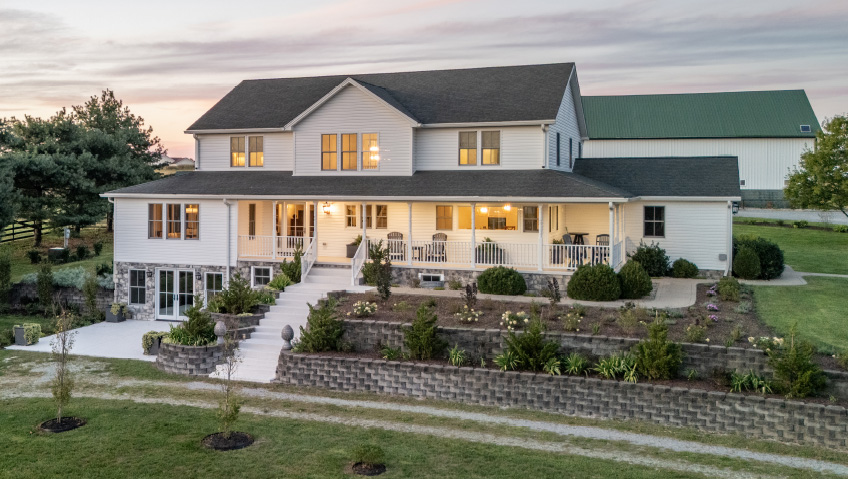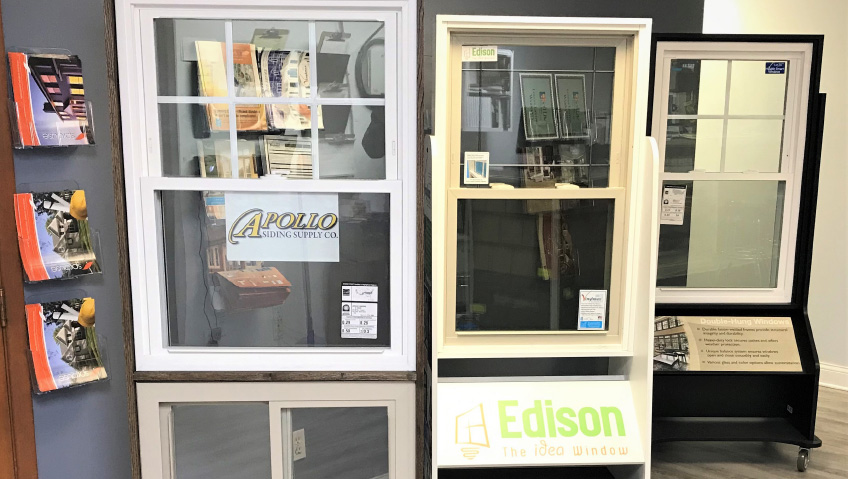Diverso Energy of Toronto, Ontario designs and installs geothermal heating and cooling systems that can reduce both energy costs and carbon dioxide (CO2) emissions. Since the company was profiled by Construction in Focus in 2021, it has been acquired by multi-billion dollar infrastructure fund manager DIF Capital Partners, added new staff, and continued to work on high-profile projects.
The DIF purchase has been the biggest change to the company since we last spoke, co-founder and CEO Tim Weber says. “A lot has changed in the industry in the last 24 months but, for us, the acquisition by DIF is a pretty big game changer. We are now fully vertically integrated. The capital, drilling, construction, management, engineering—everything is in-house now. The acquisition by DIF gave us the capital to finally be able to do that.”
Under the terms of the deal, which was announced May 10, 2023, DIF will acquire 75 percent of Diverso, but “the team, the business model, and the focus remains the same,” Weber says. “The reason we did this is, we’re at an inflection point in the industry, and in order to scale and become market leaders, we needed the access to resources—both human and capital—that DIF provides.”
Founded in 2015, Diverso offers an alternative to traditional heating, ventilation, and air conditioning (HVAC) systems that centre on boilers or heat pumps, rooftop cooling towers, and interior pipes. In a conventional HVAC set-up, pipes circulate water and rooms are alternately heated or cooled, depending on the season. If boilers are used, they are typically heated with electricity or natural gas. A geothermal system, by contrast, consists of three main elements: the ground, pipes which can descend hundreds of feet into the earth, and water.
As the company’s website explains: “In the summer, rather than using a cooling tower to discharge the building’s heat into the air, the heat from the building is stored in the ground, turning the geothermal borefield into a large thermal battery. During the winter season, the building takes advantage of the stored energy collected over the summer to heat the building’s central water loop just like a boiler would.”
As geothermal systems do not require boilers or cooling towers, energy, maintenance, and repair and replacement costs are all significantly reduced. “The much bigger implication—if you look at it from a global perspective—is that eliminating those boilers eliminates the use of natural gas, hence eliminating CO2. It’s about a 70 percent carbon reduction per annum on the building,” notes Weber.
Since the company was launched, it has achieved some impressive milestones, with 1,900 boreholes drilled to date. Its geothermal systems have eliminated 7,500 tons of CO2 emissions (the equivalent of taking 1,500 cars off the road).
Diverso has also been collecting statistics on some of its biggest projects. A geothermal system the company installed at a 66-storey tower that is part of The Exchange District Condos in Mississauga, Ontario has eliminated 644 tons of CO2—the equivalent of removing 129 cars from the road. Diverso drilled 180 boreholes for this tower, which at present is the tallest geothermal-fitted building in North America. The project’s developers have now hired the company to work on a new project “which will actually be taller,” shares Weber.
A geothermal system at the 32-storey Alba Condos, also in Mississauga, entailed the drilling of 105 boreholes and has led to the removal of 410 tons of CO2 to date (the equivalent of 82 cars). A system at the luxury Brookhouse Gate condominiums in Newcastle, Ontario, meanwhile, has been running for five years.
Diverso has also installed geothermal systems in Kitchener, Kingston, and Barrie, Ontario and is considering future expansion, possibly into the United States. Still, most of the company’s work is centred on the booming Greater Toronto Area. “That’s where the cranes are,” says Weber.
The company operates like a utility with an ‘energy-as-a-service’ model in which it owns the infrastructure it installs and, in turn, provides services to clients under 30-year contracts. While it can do retrofits, most projects the company takes on involve new construction.
Geothermal’s growing popularity is being driven by both regulations and “organic momentum,” Weber explains. As of May 1, 2022, new buildings in the City of Toronto have been required to follow the Toronto Green Standard (TGS) Version 4. Installing a geothermal heating/cooling system is one way developers can meet TGS regulations, which are designed to reduce greenhouse gas emissions, energy use, and Toronto’s carbon footprint. Other Ontario cities have introduced aggressive green building standards of their own.
As for organic momentum, Weber says, “I think a lot of these developers are looking at other developers and they say, ‘Oh, they’ve done [geothermal]; now I want to do it.’ And they’re realizing it’s not so hard. There’s proof of concept.”
Diverso is reaping some of the benefits of the geothermal trend, he adds. It helps that the company has a solid background in construction and drilling techniques.
“We’ve removed a lot of the anxiety and ambiguity that surrounded geothermal for so many years. What we’ve done is make developers comfortable… We’re boring 100 holes, 600 feet deep, underneath a half-a-billion-dollar asset. Construction is tough—you can’t get around that… It’s not only that [geothermal] is a nice technology, but the building is also relying on this infrastructure for its heating and cooling. The consequences of failure are incredibly high,” Weber states.
Diverso’s know-how thus extends to all aspects of geothermal project management, including contracts, legal issues, and financing. Because a well-constructed geothermal system can remain functional throughout the entire lifespan of its building, the company offers long-term post-installation support. As part of its suite of services, the company will monitor and maintain its geothermal installations.
The company “provides that level of confidence, which comes from our experience. We’re able to answer questions, sit down, talk to clients. They vet us. They walk away saying, ‘That’s the level of experience we need. We’re going to dip our toe into the uncharted waters,’ which, for them, is geothermal,” says Weber.
Until recently, the company primarily partnered with smaller developers. Larger developers can be “very risk averse” which made them apprehensive about geothermal, he says. This has changed as of late, and now the team is working with some big names in the real estate world, including Minto, Aspen Ridge, First Capital, Fengate, and Woodbourne.
The company’s staff has grown from roughly 15 people last year at this time to 25 today, and the firm has acquired its first drill rig, with two more on order. Diverso still uses some outside contractors but prefers to perform most of its own work.
“Drilling is one thing, but the most critical thing is the engineering,” says Weber. “We now have a team of seven engineers in-house. Our construction management and site supervisors are all in-house. This is where DIF [support] comes in. We’re the only geothermal utility where the capital for the projects is also in-house,” he explains.
While the company has a core of very experienced staff, Diverso is looking to bring in new talent. “We hire the person, we teach the skills… We’ve been hiring fairly young. [We look for] the right attitude and the right mindset, and it’s been working very well. We have a lot of senior people who have a ton of experience and we also need enthusiasm and commitment,” he points out.
In addition to hiring youthful, enthusiastic employees, Diverso wants to kick-start a promotional campaign. Weber admits that the firm “hasn’t done a good job of self-promotion. It’s probably our weakest point to date,” which is likely due to being “hyper-focused on meeting the demand, getting projects done, and growing.” The new emphasis on promotion includes plans to network, attend more industry events, and generally spread the word about the benefits of the company’s offerings.
While not looking to expand into other energy sectors besides geothermal, there have been discussions about extending the company’s market reach. At present, over 90 percent of its work consists of projects in multi-family residences, with office and retail taking up the remainder. The company is now looking to get into the single family home market.
“This would be a bit of a departure from the norm for us, but it’s within our wheelhouse,” says Weber.
For all its growth and the partnership with DIF, the company does face certain challenges. Even as geothermal options have gained popularity, construction costs have increased thanks to inflation and higher interest rates. This might be an aftereffect of the COVID pandemic, which massively disrupted supply chains and the economy in general.
Even though some projects may be on hold, Weber is highly optimistic about the future of Diverso Energy and geothermal power.
“Five years from now, the objective is that we are the market leaders in this space. We’ll be significantly larger. I want Diverso to be synonymous with geothermal,” he affirms.






